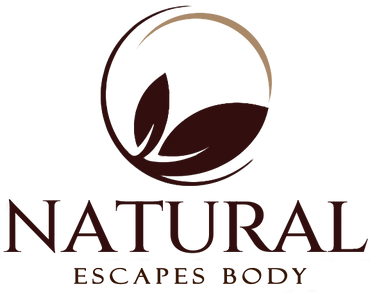Coco Glucoside: Gentle Plant-Based Cleanser & Foam Booster
Quick Facts
Botanical / Chemical Name: Alkyl Polyglucoside (APG) / Coconut Oil Glucoside
INCI Name: Coco Glucoside
Extract Type: Plant-derived non-ionic surfactant (from coconut oil and glucose)
Main Benefits: Gentle cleansing, foam boosting, biodegradable, sulfate-free alternative
Best Uses: Shampoos, body washes, facial cleansers, baby care, sensitive skin products
Overview
Coco glucoside is a mild, plant-based cleansing agent made from coconut oil fatty acids and glucose from corn, wheat, or potato starch. This eco-friendly surfactant provides gentle yet effective cleansing, making it an ideal sulfate-free alternative for sensitive skin and baby care. Because it is both biodegradable and non-toxic, coco glucoside is widely used in natural and sustainable shampoos, body washes, and facial cleansers.
What the Science Says
- Clinical studies show coco glucoside has significantly lower irritation potential compared to sulfates, even at concentrations up to 10%[1].
- Research shows it helps preserve the skin barrier and prevents excessive transepidermal water loss (TEWL) compared to traditional surfactants[2].
- Environmental studies confirm it is fully biodegradable within 28 days and has low aquatic toxicity[4].
- Foaming studies demonstrate it boosts foam quality when blended with other mild surfactants, creating a luxurious lather[3].
Key Nutrients / Compounds
- Coconut-derived fatty acids: Provide cleansing power while remaining gentle.
- Glucose polymers: Sugar-based molecules that enhance mildness and biodegradability.
- Non-ionic structure: Neutral charge reduces irritation risk and increases compatibility.
- Amphiphilic properties: Balance between water-loving and oil-loving parts allows effective cleansing.
Skin Benefits
- Removes dirt, oil, and buildup without stripping natural moisture
- Supports the skin barrier and natural pH balance
- Suitable for sensitive and eczema-prone skin
- Leaves skin soft, not tight or dry
Hair & Scalp Benefits
- Cleanses scalp gently without irritation
- Supports scalp moisture balance
- Creates a rich lather in shampoos without sulfates
- Safe for color-treated and sensitive scalps
Why Natural Escapes Body Uses It
At Natural Escapes Body, we choose coco glucoside for its gentle yet effective cleansing action. In our shampoos and body washes, it creates a creamy lather that feels luxurious while staying safe for sensitive skin. Because it is biodegradable and derived from renewable plants, it aligns perfectly with our commitment to eco-conscious beauty.
Products Featuring This Ingredient
- Shampoos
- Body washes
Safety Notes
- Comedogenic rating: 0 (non-comedogenic)
- Considered safe for all skin types, including sensitive and baby skin
- Patch testing recommended for those with highly reactive skin
- Non-irritating and non-sensitizing at cosmetic concentrations
- Pregnancy and breastfeeding safe
FAQs
Is coco glucoside safe for sensitive skin?
Yes, coco glucoside is one of the mildest surfactants available and is widely used in baby products and cleansers for sensitive or eczema-prone skin.
Does coco glucoside create foam?
On its own, it produces moderate foam, but when blended with other mild surfactants it creates a rich, creamy lather perfect for shampoos and body washes.
Is coco glucoside natural and eco-friendly?
Yes, it is derived from renewable coconut oil and plant-based glucose, and is fully biodegradable with low environmental impact.
Can coco glucoside be used in sulfate-free products?
Absolutely. It is a popular sulfate-free alternative that provides effective cleansing without the harshness of SLS or SLES.
Scientific References
- Safety Assessment of Decyl Glucoside and Other Alkyl Glucosides as Used in Cosmetics. International Journal of Toxicology, 2013.
- A review on the synthesis of bio-based surfactants using green chemistry principles. DARU Journal of Pharmaceutical Sciences, 2022.
- Alkyl Polyglucosides: An emerging class of sugar surfactants. ScienceDirect Topics, 2014.
- Fate of Alkyl Polyglucosides in the Environment. ResearchGate, 2021.
- Safety assessment of decyl glucoside and other alkyl glucosides as used in cosmetics. PubMed, 2013.
- Alkyl Polyglycoside - Overview. ScienceDirect Topics, 2024
- Synthesis and characterization of alkyl polyglucoside surfactant: A pilot tool to industrial applications. ResearchGate, 2021
- Coco-Glucoside Safety Information. Cosmetics Info, 2023
- Alkyl Poly Glucosides (APGs) Surfactants and Their Properties: A Review. ResearchGate, 2012

